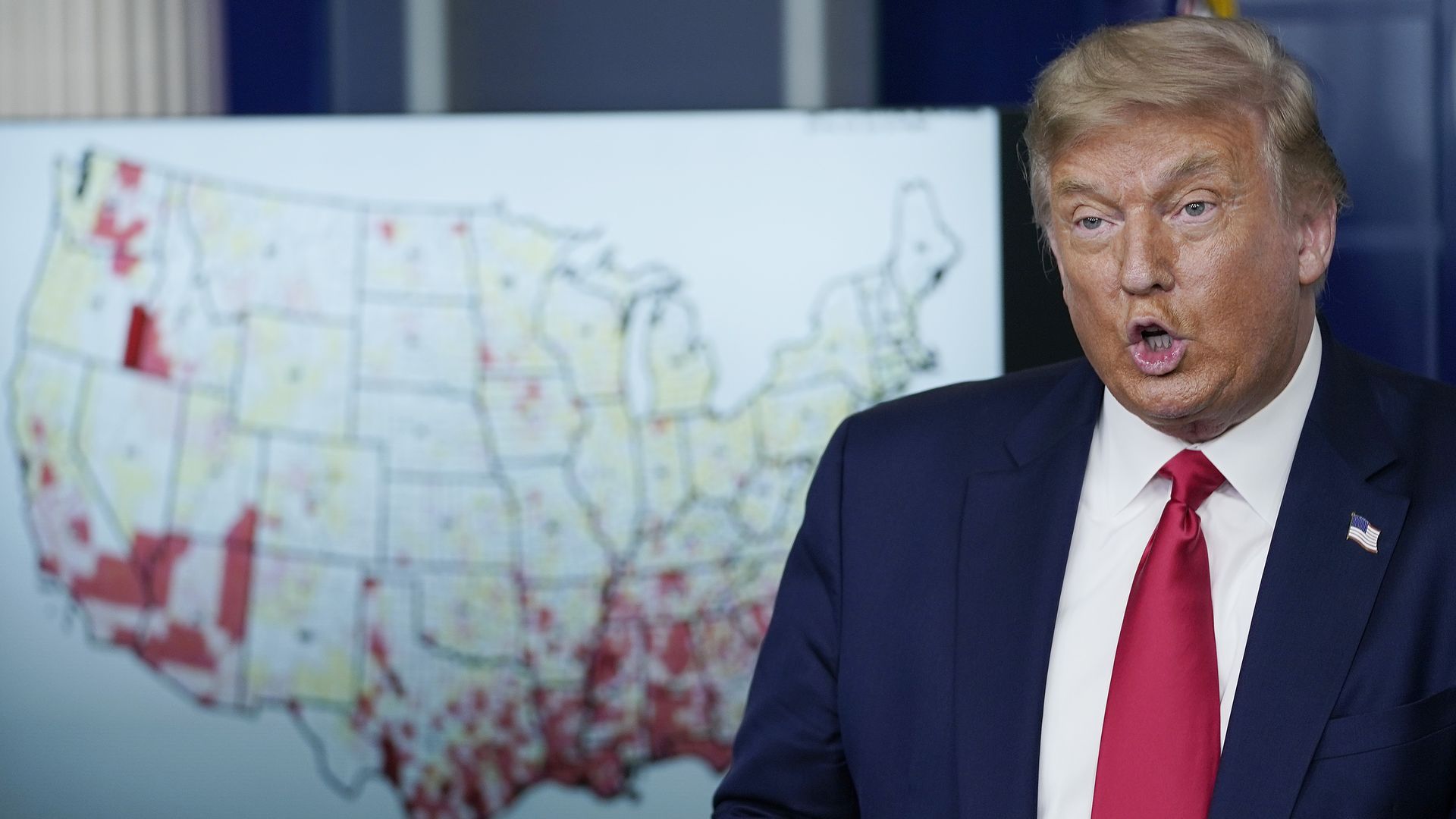Trump launches "Embers Strategy" in coronavirus hotspots
Add Axios as your preferred source to
see more of our stories on Google.

President Trump during a news conference on July 23. Photo: Drew Angerer/Getty Images
The Trump administration is sending increased personal protective equipment, coronavirus test kits and top health officials like Drs. Anthony Fauci and Deborah Birx to coronavirus hotspots across the U.S. as part of a campaign called the “Embers Strategy," White House officials tell Axios.
Why it matters: The push is part of a larger effort to show that President Trump is taking the pandemic seriously, something White House officials describe as a "renewed focus."
- The new campaign comes as top Trump advisers have told the president to concentrate his coronavirus messaging on progress with vaccines and therapeutics in an effort to shift the focus of the election conversation to who would be better at reviving the economy.
- Its name, the “Embers Strategy," is meant "to highlight the risk level of 'embers' to decrease the likelihood of 'fires,'" a senior White House official said.
Details: Public health surrogates will appear on local and regional television and radio to educate the public on mitigation tactics, including wearing masks, practicing social distancing, frequent hand washing and staying home when ill.
- They will focus on areas reporting positive rates between 5% and 10% to prevent them from slipping into a "hot zone" category of above 10% positive rates.
- The Trump administration is expecting to land around 200 media segments over the next two weeks, as Axios reported on Sunday.
Other administration surrogates include:
- Alex Azar, secretary of Health and Human Services.
- Jerome Adams, surgeon general.
- Robert Redfield, CDC director.
- Stephen Hahn, FDA commissioner.
- Seema Verma, Centers for Medicare and Medicaid Services administrator.
The big picture: Multiple cities are already receiving the messaging, including Los Angeles, Cleveland, Washington, D.C., Denver, Portland and Milwaukee.
- The U.S. has reported 4.4 million cases and more than 150,000 deaths from the virus since the start of the pandemic, according Johns Hopkins University data. At least 16 states have reported single-day case records in July.
Go deeper:

